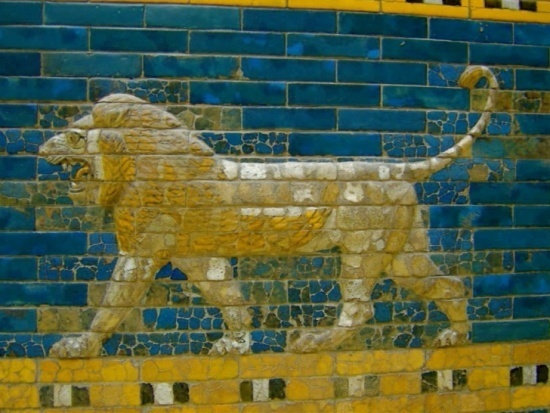"There Is a Man in Your Kingdom" -- Daniel 5:1-12
 Wednesday, May 31, 2017 at 11:45AM
Wednesday, May 31, 2017 at 11:45AM 
The Tenth in a Series of Sermons on the Book of Daniel
Nebuchadnezzar foresaw this terrible night in a dream–a great empire, crumbing by the day, now entering its final hours. In his visionary dream of a gigantic metallic statue with a head of gold, Nebuchadnezzar saw the greatness of his own empire, even as Daniel warned him that both the king and his empire would come to an end–crushed by a rock cut from a mountain without human hands. Now, Nebuchadnezzar is long since dead and gone with the last of the Babylonian kings (Belshazzar, co-regent with his father–Nabonidus) on the throne. The year is 539 BC. Although Daniel does not reveal the circumstances behind the debauchery seen in the opening verses of chapter 5 until the closing verses of the chapter, this is the Kingdom of Babylon’s last night. Persian armies are about to take Babylon through a daring commando raid using the city’s dried-up water supply. Instead of leading the city’s defenders in an effort to save the city, Belshazzar hosts a huge drunken party as though all were right with the world. On this night, the last hours of the great Babylonian empire, Belshazzar spends it drinking and mocking YHWH, even as YHWH takes his kingdom from him and gives it to another–the Persian conqueror of the city, Darius the Mede. All of this was foretold in king Nebuchadnezzar’s dream of Daniel 2.
We resume our series on the Book of Daniel picking up in Daniel 5, where the circumstances are greatly different from those at the end of Daniel 4 (v. 37), when Nebuchadnezzar confessed–even if reluctantly–“Now I, Nebuchadnezzar, praise and extol and honor the King of heaven, for all his works are right and his ways are just; and those who walk in pride he is able to humble.” Nebuchadnezzar died in 562 BC–23 years before the events of recounted here. A list of short-term successors had taken Nebuchadnezzar’s place. The first was the king’s own son, Amel-Marduk, who was assassinated by his brother-in-law in 560 (reigning just two years). One of those who plotted his death (Neriglessar) ruled unto 556, and was succeeded by his own son, Labashi-Marduk, who was brought down just a few months into his reign by a coup lead by Nabonidus, an unpopular eccentric known for his devotion to the god “Sin” instead of the traditional and most favored Babylonian god, Marduk (Bel).
Nabonidus was hated by the people, so for some ten years he ruled from the Arabian wilderness over the rapidly declining, increasingly decadent, and about to be defeated Babylonian empire–appointing his son Belshazzar as a co-regent representing the “pro-Marduk” wing of the Babylonian court. It fell to Belshazzar to remain in Babylon when the Persians finally breached the city’s walls (after damming-up the Euphrates river so that an elite unit could enter the walled city using the dried up riverbed which ran through the heart of the city). After the fall of Babylon (his capital), the cowardly Nabonidus later surrendered to the Persian king Cyrus and lived out his life in exile. Darius the Mede and Cyrus are likely one and the same man–Darius the Mede is the conquering king’s birth name, while Cyrus is thought to be his Persian royal throne name.
The scene in Daniel 5 is one in which the city’s fate has already been determined–it is just a matter of time before the Persians open the gates from the inside so that the Persian army can enter the undamaged city in triumph. We can even precisely date the events of this night to October 11, 539, because Persian military records tell us that Darius’ victorious armies marched into Babylon on 16 Tishri, 539 (October 12). According to verse 30, the king’s banquet occurred the very night the city fell to Darius.
To read the rest of this sermon: Click Here


Reader Comments